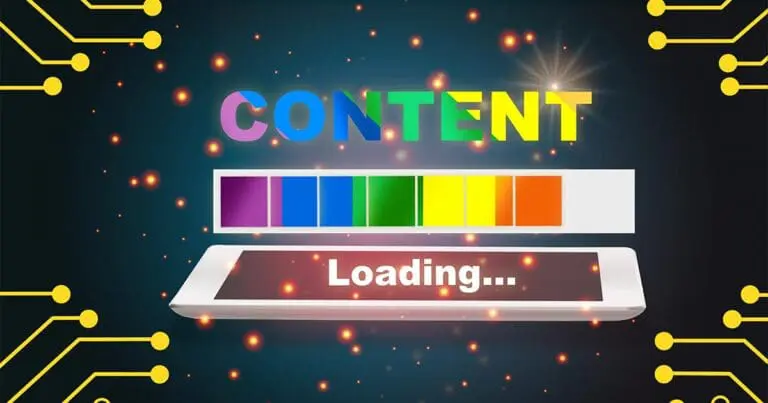AI Ethics Specialists: The Unsung Heroes of Responsible Innovation

As artificial intelligence technologies become more embedded in our daily lives, the potential risks associated with their misuse or unintended consequences are coming into sharper focus.
Issues like bias in machine learning models, invasive surveillance, and job displacement reflect the urgent ethical implications of unchecked tech growth.
Amid this complex landscape, AI Ethics Specialists play a pivotal role in shaping ethical AI development and ensuring that emerging technologies promote equity, fairness, and inclusive outcomes for all.
What Is an AI Ethics Specialist?
AI Ethics Specialists are professionals dedicated to identifying and mitigating the ethical risks and societal implications of deploying artificial intelligence systems.
These experts often come from diverse academic and professional backgrounds such as philosophy, social sciences, law, computer science, and sociology, bringing a comprehensive understanding of the ethical dimensions surrounding technology.
Their day-to-day responsibilities include developing ethical frameworks, conducting risk assessments, and guiding responsible AI development.
They work closely with cross-functional teams, including developers, data scientists, product managers, and legal professionals, to ensure ethical AI practices are embedded into the development process from the start.
Why AI Needs Ethical Oversight
AI needs ethical oversight due to AI bias and inequality, more proactive and equitable problem-solving, and more responsible innovation.
AI Bias and Inequality
The consequences of neglecting ethical oversight in AI are well-documented.
Studies have shown that predictive policing algorithms can reinforce existing societal biases, particularly when trained on historical crime data that reflects systemic inequalities.
In addition, facial recognition technologies have been linked to misuse, including wrongful arrests and surveillance concerns, prompting human rights organizations to call for stricter regulation.
Without a structured approach to ethical practices, AI can reinforce harmful biases and exacerbate inequality.
More Proactive and Equitable Problem-Solving
Ethical AI development should begin during the design phase, not as a last-minute checklist item.
By embedding ethical principles into the core development process, organizations can better anticipate potential issues and align AI outcomes with more equitable solutions.
Proactive ethical discussions help prevent harm and allow teams to navigate ethical challenges more effectively.
More Responsible Innovation
AI needs ethical oversight to ensure that innovation does not come at the cost of fairness, accountability, or public trust.
Ethics specialists serve as internal advocates for responsible innovation who help identify and mitigate risks before they escalate.
They bring ethical frameworks to life by embedding them into product development and decision-making, ensuring that ethical initiatives are not just symbolic but actionable.
These professionals help organizations navigate complex ethical challenges while maintaining a commitment to equity and responsible AI development.
Key Areas AI Ethics Specialists Focus On
AI ethics specialists focus on bias and fairness, transparency and clarity, accountability and governance, and privacy and data protection among other key areas.
Bias and Fairness
Numerous studies have demonstrated that bias in training data or algorithm design can perpetuate existing societal inequalities, particularly in areas like hiring, lending, and criminal justice.
This is why ethics researchers work to uncover and correct these biases, ensuring machine intelligence reflects human intelligence guided by ethical principles.
Transparency and Clarity
Many AI systems, particularly deep learning models, operate as “black boxes” making decisions in ways that are not fully interpretable by users or even developers.
This lack of transparency can obscure how decisions are made, which raises serious ethical concerns around accountability and fairness.
Ethics specialists work to ensure that the reasoning behind AI outcomes is clearly documented and communicated, allowing stakeholders to evaluate, question, and improve these systems.
Accountability and Governance
Establishing clear accountability in artificial intelligence systems is essential to responsible deployment.
Ethics specialists help design governance structures and implement ethical frameworks that clarify roles, outline protocols for addressing failures, and embed ethical oversight into every stage of development.
This creates a foundation for trust, legal compliance, and long-term integrity.
Privacy and Data Protection
AI systems frequently rely on collecting and analyzing vast amounts of personal data, raising significant ethical risks around privacy and consent.
Ethics specialists work to ensure data is handled responsibly, balancing innovation with the protection of individual rights.
They evaluate practices against evolving regulatory frameworks, help establish robust privacy policies, and advocate for data minimization and informed consent throughout the development process.
Human Oversight and Autonomy
Preserving human oversight is critical to ensuring AI systems support—rather than override—human judgment.
Overdependence on machine intelligence can erode accountability and reduce the ability to intervene when errors occur.
Ethics specialists advocate for keeping humans involved in key decision-making processes, reinforcing autonomy and ensuring that technology remains a tool for empowerment, not control.
Environmental and Social Impact
The reach of AI extends beyond the digital realm, influencing environmental sustainability and community well-being.
From energy consumption to labor displacement, the societal impact of AI must be considered alongside its technical performance.
Ethics specialists assess these broader consequences and promote practices that prioritize long-term sustainability, equitable outcomes, and a positive real-world impact.
Challenges AI Ethics Specialists Face
AI ethics specialist face challenges like getting leadership buy-in, communicating the business need, the speed of innovation, and dynamic global regulations.
Getting Leadership Buy-in
Even though ethics specialists play a crucial role in guiding responsible AI practices, they often operate without decision-making authority or executive sponsorship.
This lack of institutional support can limit their ability to embed ethical frameworks into core strategies and product development.
Securing buy-in from leadership is essential to elevate ethical oversight from a checklist item to a strategic priority that influences outcomes at every level of the organization.
Communicating the Business Need
One of the biggest hurdles ethics professionals face is making the case for why ethical practices matter to the bottom line.
Translating complex ethical issues into concrete business value requires fluency in both ethics and enterprise strategy.
By linking responsible AI practices to reduced security risks, stronger brand trust, regulatory compliance, and more inclusive innovation, ethics teams can position their work as essential to sustainable growth and long-term success.
The Speed of Innovation
AI is advancing at a pace that outstrips the development of corresponding ethical frameworks and internal safeguards.
Rapid release cycles and evolving technologies often leave little time for critical evaluation of ethical implications.
Ethics professionals must navigate this tension by finding ways to integrate ethical oversight into agile workflows without slowing innovation, ensuring that speed does not come at the expense of fairness, transparency, or accountability.
Dynamic Global Regulations
AI is inherently global, yet regulatory frameworks differ widely across regions and are constantly evolving.
This fragmented landscape poses a significant challenge for organizations trying to ensure compliance while maintaining ethical integrity.
Ethics specialists must engage in continuous learning and develop a deep understanding of legal, cultural, and ethical standards worldwide to help organizations navigate uncertainty and stay ahead of shifting requirements.
How Organizations Benefit From Investing in AI Ethics Specialists
Organizations benefit from investing in AI ethics specialists by building trust with the public, remaining compliant, boosting innovation, and gaining a competitive edge.
Building Trust With the Public
When companies embed ethical AI practices, they foster trust among consumers, regulators, and stakeholders.
Transparent and fair AI strengthens brand credibility and builds long-term loyalty.
Remaining Compliant
With increasing scrutiny on Artificial Intelligence, failing to comply with ethics policies and regulations can lead to reputational and legal damage.
Proactive ethics efforts help companies stay compliant and avoid costly missteps.
Boosting Innovation
Research has shown that inclusive teams develop more innovative solutions, and when these principles extend to AI development, the resulting products are often more robust and relevant across diverse user groups.
By involving voices from diverse backgrounds, including those in non-profit organizations, companies build smarter, more relevant technologies with broader appeal.
Gaining a Competitive Edge
Organizations that prioritize responsible AI development are better positioned to differentiate themselves.
Leading tech giants like Microsoft, Google, and IBM have are investing in AI ethics specialists and have established internal AI ethics teams to guide responsible innovation.
The Future of AI Ethics Roles
As the demand for ethical AI grows, so does the demand for professionals with hands-on experience in navigating ethical dimensions of technology.
Future roles will likely evolve to become part of integrated, cross-functional teams with greater influence on product strategy.
Experts anticipate the rise of standard certifications, third-party AI audits, and centralized policy bodies as ethical AI governance continues to mature.
As Artificial Intelligence continues to scale, the role of corporate AI ethics specialists and dedicated ethics departments will become indispensable.
AI Ethicists: Who Are They?
AI Ethics Specialists are more than advisors, they are defenders of societal values, navigators of ethical dilemmas, and architects of trust in our Artificial Intelligence future.
They deserve both recognition and resourcing to fully enact their influence.
In an era where innovation must be balanced with responsibility, ethics can no longer be treated as optional.
Build ethical discussions into your strategy now and ensure that the future of AI is both powerful and principled.
Looking to hire top-tier Tech, Digital Marketing, or Creative Talent? We can help.
Every year, Mondo helps to fill thousands of open positions nationwide.
More reading…
- Beyond the Paycheck: What Today’s Top Talent Really Wants
- Financial Literacy Month: Budgeting for Talent Acquisition
- Internal Hiring vs. External Hiring: Cost-Benefit Analysis
- Staffing Agency ROI: How the Right Partner Saves Time, Money, & Headaches
- Best Practices for Seasonal Hiring During the Summer Slowdown
- I’m Overqualified For My Job. Now What?
- Contractors vs. Full-Time: What’s the Real Cost and Value?
- The Future of Digital Marketing Jobs: Key Takeaways from SMMW 2025
- Why Top Talent Isn’t Applying—And How to Reach Them
- Top AI Skills to Learn by Industry: Tips, Examples, Courses
- What is an Interview Score Card? Definition, Tips & Templates
- The AI Skills Surge: Why 1 in 4 Tech Roles Now Demand AI Expertise



